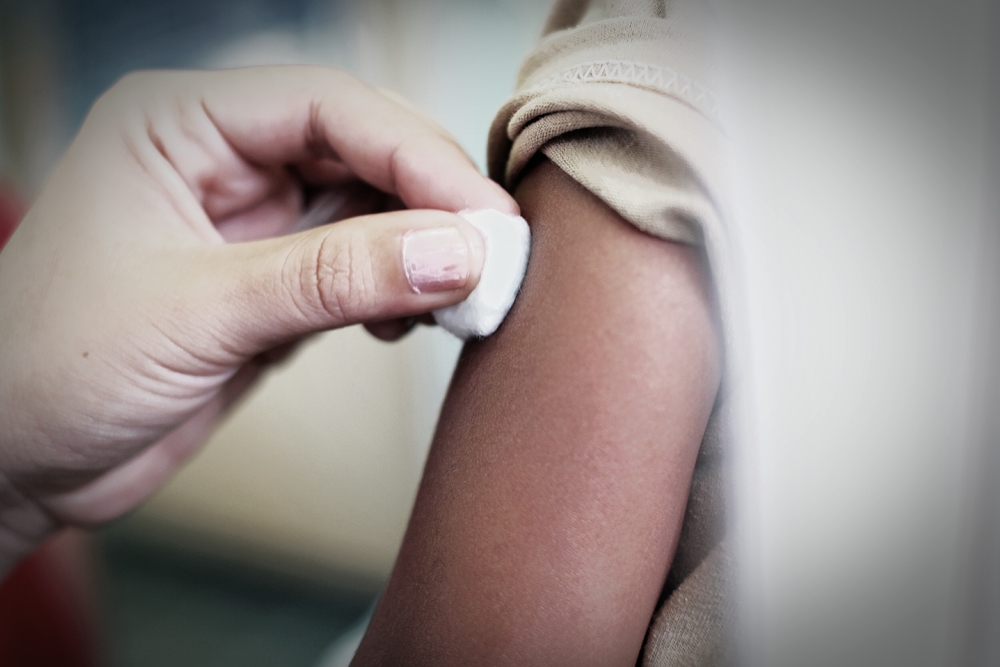As the flu season continues, you’ll start to see signs in every grocery store: “Free Flu Shots, See Pharmacist for Details”. Every year, a new version of the flu shot is offered to combat the most common strain of the flu identified that season. But not everyone receives the flu shot. Is there even a small chance that it’s dangerous? Why is this immunization so important?
The Truth About the Flu Vaccine
Myths about the flu shot crop up every year. However, none of these alleged dangers are based in reality. Before you forego your flu shot because of a less-than-honest internet source, listen to what the medical community has to say about these common myths:
- The flu shot gives you the flu
- The flu shot doesn’t work
- Getting the flu provides more immunity
- The vaccine makes you vulnerable to other diseases
- The vaccine causes severe reactions
1) The Flu Shot Gives You the Flu
Despite common misconceptions, the flu shot does not contain an active strain of the flu virus. The injection will either give you an inactivated (dead) version of the virus or portion of the virus’s genetic information to stimulate your immune system without truly giving you the flu. You may experience temporary symptoms as your body adjusts to the vaccine, but you will not catch the flu from the shot.
2) The Flu Shot Doesn’t Work
Some patients may receive the flu shot, later catch the flu anyway, and come to the conclusion that the vaccine didn’t really do anything. However, the truth is more complex. Multiple strains of the flu are active every year. The vaccine is designed to combat what doctors believe will be the most active or dangerous type, and their predictions aren’t always correct. If you get sick after receiving the vaccine, you’ve either caught a different sickness entirely or just another strain of the flu virus that the vaccine wasn’t designed for.
3) Getting the Flu Provides More Immunity
To some extent, it is true that natural immunity is more effective and lasts longer than vaccine immunity. However, the risk of complications from the flu is simply not worth it. Influenza is a serious disease and carries the risk of dangerous complications, especially for patients such as young children, seniors, and the immunocompromised. For protection against this disease, immunization is the safer choice.
Pro Tip: You may have heard that receiving the flu shot multiple times boosts your immunity. However, this is not the case. One shot is more than enough. Save the other shots for patients who need them.
4) The Vaccine Makes You Vulnerable to Other Diseases
A 2012 study seemed to suggest that the flu vaccine made patients more vulnerable to respiratory infections. However, later studies have failed to duplicate these results. While doctors still aren’t sure what caused the 2012 study to produce these confusing results, more recent science has shown that there’s almost no evidence to suggest that the flu vaccine makes you more susceptible to other viruses or infections.
5) The Vaccine Causes Severe Reactions
Some patients may experience tenderness at the injection site, low-grade fever, soreness, or a sore throat after receiving the flu vaccine. These symptoms generally last a day or two at most. On very rare occasions, within minutes or hours of receiving the vaccine, some patients may experience severe reactions ranging from fever to apparent allergic responses. These reactions are fortunately very rare, and when they do occur, are easily treatable by a medical professional. Watch your body after receiving a flu vaccine and if you notice any signs of severe reactions, speak to a doctor immediately.
The Flu Vaccine is Safe & Effective
As the flu virus thrives this fall, the best choice you can make for your own health and your loved ones’ health is to receive the flu vaccine as quickly as possible. Decades of testing have made this immunization incredibly safe and effective. Talk to your doctor about where to get a flu vaccine and when to schedule one for your children.
Connect with us to learn more about vaccines and their effects on modern healthcare.




